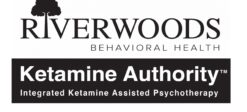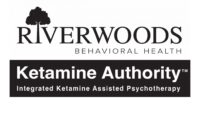
In navigating the complex journey of healing, many of us seek paths less traveled by conventional medicine, and ketamine infusion presents an intriguing avenue for trauma release.
We've observed its unique role in the healing process, offering benefits that traditional therapies may not fully provide.
From enhancing neural connectivity to fostering a deeper sense of peace, the stories of those who've embraced this treatment are compelling.
As we explore the potential of ketamine for trauma release, let's consider the transformative experiences shared by patients, inviting us to ponder its place in our own healing journeys.
Understanding Ketamine Infusion
Ketamine infusion therapy introduces a powerful anesthetic into the body to potentially alleviate symptoms of various mental health disorders. We've seen it become a beacon of hope for those who've found little relief in traditional treatments. Unlike standard medications that often take weeks to show any improvement, ketamine works differently and can provide relief much quicker, sometimes within hours or days.
We understand that the idea of using an anesthetic for mental health treatment might raise eyebrows. But here's the thing: ketamine affects the brain in a way that can create new neural pathways, helping to break the cycle of negative thoughts and feelings associated with conditions like depression, anxiety, and PTSD. This doesn't mean it's a cure-all or without its risks, but for many, it's a game-changer.
As we explore this option, we're cautious yet optimistic. We're not suggesting ketamine infusion as the first line of treatment, but it's an option worth considering when others fail. It's about adding another tool to our toolbox, one that offers a different approach to healing. We're committed to understanding and exploring every possible avenue to help us navigate the complexities of mental health treatment.
Ketamine's Role in Trauma Healing
Having explored the broader scope of ketamine infusion therapy, we now focus on its specific impact in facilitating trauma recovery. Ketamine's unique properties offer a new pathway for those who've found traditional treatments less effective. It's not just another option; it's a game-changer for many.
We understand trauma's deep-rooted impact on the mind, often barricading the healing process. Ketamine acts on the brain in a way that can lower these barriers, allowing for a more profound engagement in therapy. It's as if ketamine momentarily suspends the usual defenses, giving individuals a window where they can address traumatic memories without the overwhelming emotional response typically triggered.
This doesn't mean it's an easy fix. We're keenly aware of the complexities involved in trauma healing. However, ketamine infusion creates a unique therapeutic opportunity. It facilitates a state where patients can explore and process traumatic events with a level of detachment not usually accessible to them. This can accelerate the healing process, making it an invaluable tool in our arsenal against the debilitating effects of trauma.
We're not suggesting ketamine is the sole answer but, when used judiciously, it can significantly enhance the trauma recovery journey.
Benefits of Ketamine Therapy
In exploring the benefits of ketamine therapy, we find a multitude of advantages that extend well beyond traditional treatment boundaries. This innovative approach offers rapid relief from symptoms of depression, anxiety, and PTSD, areas where conventional therapies sometimes fall short. Unlike many antidepressants that take weeks to become effective, ketamine's impact is often felt within hours or days, providing a lifeline for those in acute distress.
We've observed that ketamine therapy can break the cycle of chronic pain, too, by resetting pain pathways, offering an alternative to those who've found little relief with standard pain management strategies. It's also noteworthy that ketamine can foster new neural connections, paving the way for long-term healing and recovery. This aspect of neuroplasticity is crucial, as it supports the brain in developing healthier patterns of thought and behavior.
Moreover, the therapy's ability to provide a dissociative experience allows individuals to gain new perspectives on past traumas, facilitating a deeper level of therapeutic processing than might be accessible through talk therapy alone. This unique feature can catalyze profound breakthroughs in treatment-resistant cases, making ketamine therapy a potent tool in our arsenal against mental health challenges.
Patient Experiences With Ketamine
Many individuals report transformative experiences during their ketamine treatments, describing significant emotional and psychological breakthroughs. These stories often share a common theme: a profound sense of relief from the burdens of trauma that had previously felt insurmountable. We've heard from people who've struggled for years with traditional therapies, finding in ketamine a doorway to healing that they hadn't imagined possible.
Patients frequently tell us about the immediate difference they notice after their sessions. The sense of dread or constant anxiety lifts, offering a rare peace that had seemed elusive before. It's not just about the moments during treatment; it's the lasting change in their outlook and emotional resilience that truly astonishes us.
We've also observed a remarkable shift in how these individuals relate to their past traumatic experiences. Where there was once a visceral, immediate reaction, there's now a detachment that allows for healthier processing and coping mechanisms. It's as if ketamine provides a buffer, giving patients the space they need to heal without the overwhelming emotional response that typically accompanies trauma recall.
The consensus among those we've spoken with is clear: ketamine isn't just another treatment option. For many, it's the key to unlocking a life not dominated by the shadows of the past.
Choosing Ketamine for Trauma Release
Given the profound impact ketamine has on those grappling with trauma, it's crucial to understand why and how individuals opt for this therapeutic route. We're drawn to ketamine infusion therapy because traditional treatments haven't alleviated our deep-seated pain. Many of us have tried various medications and therapy sessions, yet we're still searching for relief. We've learned that ketamine works differently, targeting the brain's receptors to create new pathways, which can lead to significant improvements in our mental health.
We're also encouraged by the rapid onset of ketamine's effects. Unlike other treatments that can take weeks or months to show any signs of progress, ketamine offers a quicker alternative, with some of us noticing changes after the first few sessions. It's this immediate potential for improvement that pushes us to choose ketamine despite its novelty in the mental health field.
Moreover, we're comforted by the controlled, clinical setting in which ketamine infusions are administered. This safety aspect reassures us, making us more open to trying this innovative treatment. We're hopeful that ketamine infusion therapy could be the breakthrough we've been longing for in our journey toward healing from trauma.
Frequently Asked Questions
How Does One's Diet or Lifestyle Influence the Efficacy of Ketamine Infusions for Trauma Release?**
We've found that our diet and lifestyle play crucial roles in how effective treatments are for us, including ketamine infusions. Eating a balanced diet, staying hydrated, and maintaining a healthy lifestyle can significantly enhance the treatment's effectiveness. It's all about creating the best environment for our bodies to respond to treatment.
Also, reducing stress and improving sleep patterns can positively impact our overall experience and outcomes with these infusions.
Can Ketamine Infusion Therapy Be Combined With Other Forms of Therapy, Such as Cognitive Behavioral Therapy (Cbt) or Psychotherapy, for Enhanced Trauma Healing?**
We're often asked if we can combine ketamine infusion therapy with other treatments like CBT or psychotherapy for better trauma healing results.
Our answer is always yes; integrating ketamine therapy with these methods can create a more comprehensive healing experience.
What Are the Long-Term Effects of Using Ketamine for Trauma Release, Particularly Regarding Memory and Cognitive Functions?**
We're curious about the long-term effects of using ketamine for trauma release, especially how it impacts memory and cognitive functions.
It's crucial for us to understand whether the benefits outweigh potential risks. While it offers a promising avenue for healing, we're concerned about any lasting changes it might cause in our brain functions.
We're eager to dive deeper into research and firsthand accounts to make an informed decision on its use.
Are There Any Specific Contraindications or Health Conditions That Make Ketamine Infusion an Unsuitable Option for Certain Individuals Seeking Trauma Release?**
We're exploring if there are specific health conditions or contraindications that might make some individuals ineligible for a certain treatment option. It's crucial for us to understand these limitations to ensure everyone's safety and effectiveness of the treatment.
Identifying these factors early on helps us tailor our approach, ensuring we're providing the best possible care while avoiding any unnecessary risks for those seeking relief from their conditions.
How Does the Cost of Ketamine Infusion Therapy Compare to Other Trauma Treatment Options, and Is It Covered by Health Insurance Plans?**
We're exploring how the cost of ketamine infusion therapy stacks up against other trauma treatment options and whether health insurance plans typically cover it.
It's crucial for us to understand the financial implications of choosing this treatment path. While we've heard that costs can vary widely, we're also curious if insurance coverage might ease the financial burden, making it a more accessible option for those in need of trauma therapy.
Conclusion
In conclusion, we've seen how ketamine infusion can play a pivotal role in trauma healing. Its benefits, alongside the positive experiences shared by patients, make it a compelling choice for those seeking relief from trauma.
We understand the importance of finding effective treatments, and ketamine therapy offers a ray of hope. By choosing ketamine for trauma release, we're embracing a path that could lead to significant breakthroughs in our healing journey, making it a valuable option to consider.

